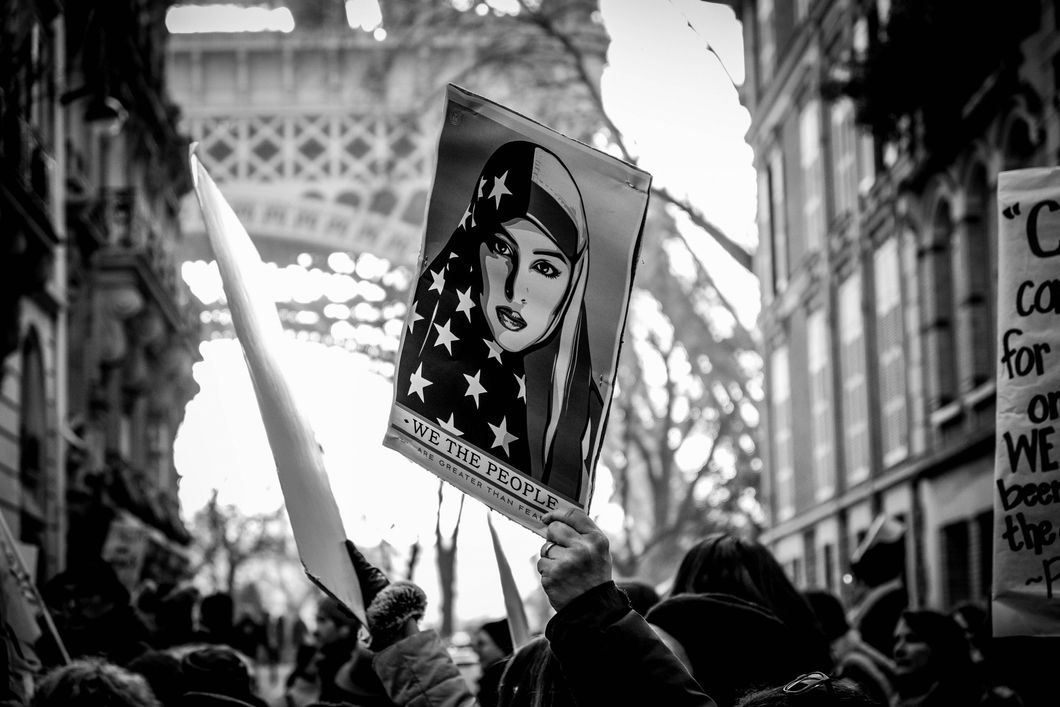Throughout history, the United States overbearing involvement with the affairs of other foreign countries is driven by a greater, moral obligation. As one of the most wealthy, powerful, and free nations of the entire world, the United States feels as though it is their duty to intervene. In this way, the United States has asserted its dominance over weaker, smaller nations, suggesting the ways for that nation to resemble the United States. These actions can have both positive and negative ramifications.
If we go back to only a few decades ago, the United States was firmly against the Communist USSR due to their opposing economic system, civil liberties, and oppressive regime against its people. Therefore, the United States found itself at war, the Cold War, with the USSR until 1989. President Ronald Reagan famously urged, "Mr. Gorbachev, tear down this wall!" And in 1989, the Berlin Wall fell down, and so did Communism.
In a more negative sense, the United States invaded Iraq in 2008 with the presupposition that Iraqi dictator Saddam Hussein possessed weapons of mass destruction. Due to countless historical accounts, it was clear that Hussein did not. Yet, the United States continued their invasion and assassination attempt on the Iraqi dictator. Nearly ten years later, terrorist groups that were suppressed under Hussein, like Al Qaeda and now ISIS, are in control. Although it was a well-known fact that Saddam Hussein was a brutal dictator, the United States was driven by their one-sided opinion that all dictators are morally wrong and must be eradicated. The United States did not think about the brutal ramification, now a reality, that taking out a brutal dictator and leaving a political vacuum might result in an even more repressive group taking power.
A popular argument in support of the United States' invasion of Iraq was to defend the country after the terrorist attacks on September 11, 2001. However, did the United States forget that the mastermind of the attacks on 9/11, Osama Bin Laden, was actually a native Saudi, not Iraqi citizen?
How does this relate to today, you might ask? Well, today we find ourselves in the same position. The United States continues to play the part of the "Democracy Police" in the global community, pointing out different government systems and pledging their allegiance to destroy them from within without considering the long-term consequences of their short solution to making the world more democratic. And while the United States plays this part, they never seem to let some oppressive governments slide under their noses without apprehension.
Take Saudi Arabia, for example. I do not see the United States project its moral, democratic superiority to protest the extremely corrupt monarchy that has ruled for decades. I did not see the United States protest the fact that a person like me, a woman, living in Saudi Arabia would not be legally able to drive until only a couple of months ago. And since then, it does not seem like the monarchy desires to grant women or the marginalized any more rights than that. So where is the "Democracy Police" now? Is the United States quiet because Saudi Arabia is extremely wealthy? Or is the United States silent because Saudi Arabia grants us billions of dollars of oil every single year? Is money the one thing that will bring down an all-mighty, political know-it-all like the United States?
And whatever happened to public fear of "Radical Islamic Terrorism"? Does that only apply to poor Islamic countries, like Syria and Yemen? How could Saudi Arabia, one of the most dangerous places to travel in the Middle East, not make the list of countries banned? How come the United States State Department rates Saudi Arabia just as safe to travel to as England or Italy?
Why is the public opinion on Saudi Arabia so neutral? Where are all the protests? Where are all the "Feminists" from the Women's March? Where are the Republicans who love to "call it what it is: Radical Islamic Terrorism", yet support Trump's praise of the Saudi monarchs? If they are so uptight about identifying radical Islamic terrorism, then how come they do not call out the radical regime right in front of them? Are their mouths shut tight with Saudi money? Has Saudi oil clogged their ears? Or are they just hypocrites?
Is the United States the kind of policeman who gives you a ticket, but if you pull out a $20, they just give you a "warning"?
It is time to stop neutralizing well-known oppressive regimes throughout the world, and Saudi Arabia is one of them. I am tired of hearing about Kim Jung Un's "courage", that "Putin is fine", and that the Saudi's response to the death of Washington Post journalist Jamal Khashoggi was "a good first step" and "credible". It is time for the United States to toughen up, put on the police badge, and focus on the legitimate "bad guys" throughout our global community.

















